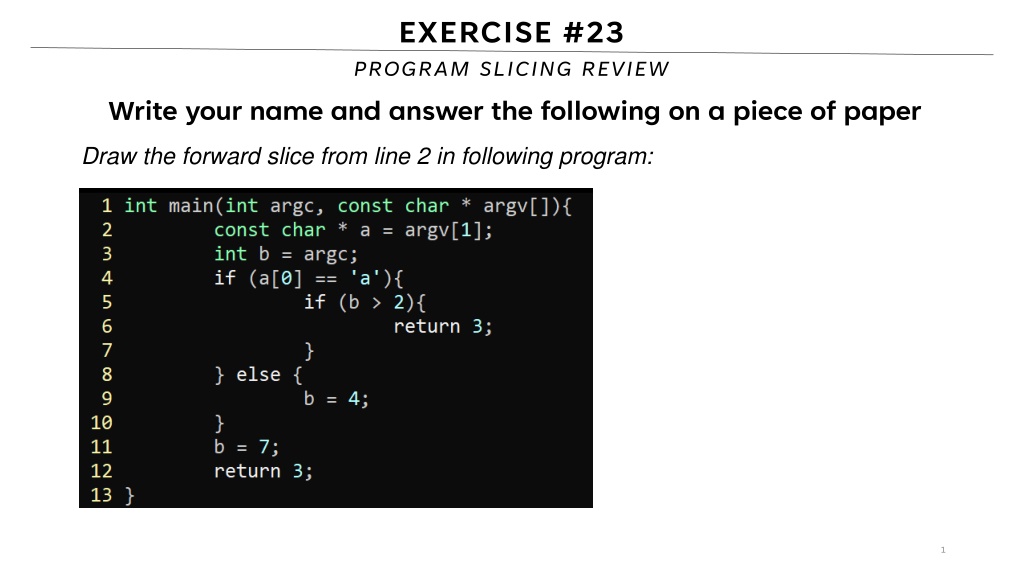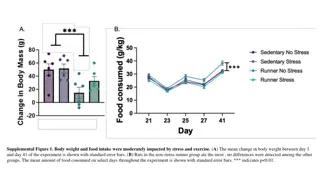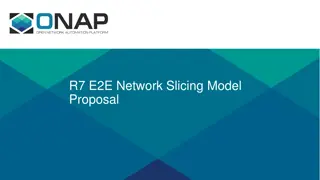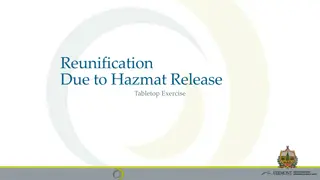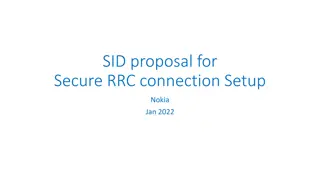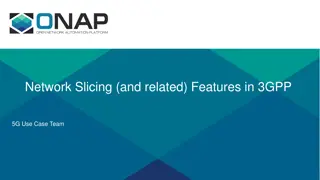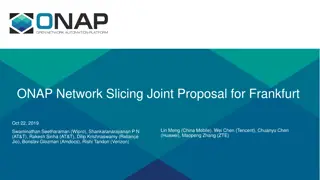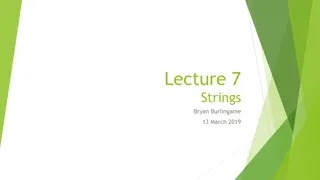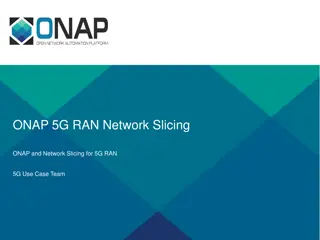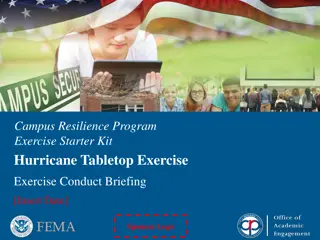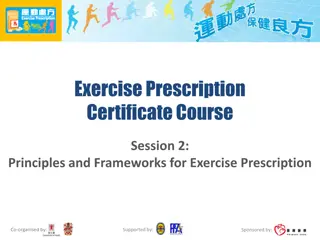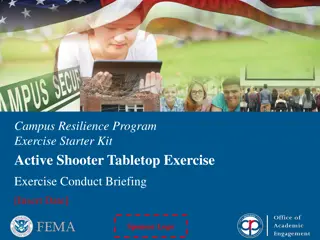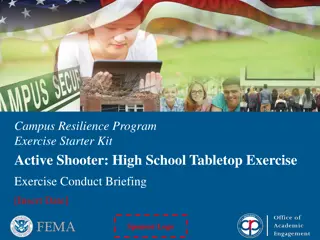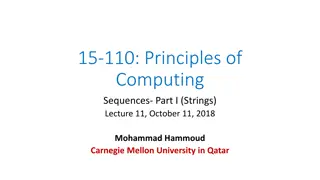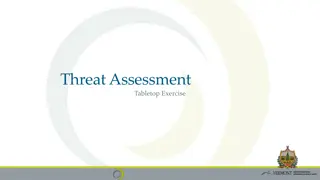Exercise #23: Program Slicing Review
Explore the necessity of multi-function analysis in real-world programs. Consider human factors and security processes for software development. Learn about retrofitted security solutions and vulnerabilities in practice.
Download Presentation

Please find below an Image/Link to download the presentation.
The content on the website is provided AS IS for your information and personal use only. It may not be sold, licensed, or shared on other websites without obtaining consent from the author.If you encounter any issues during the download, it is possible that the publisher has removed the file from their server.
You are allowed to download the files provided on this website for personal or commercial use, subject to the condition that they are used lawfully. All files are the property of their respective owners.
The content on the website is provided AS IS for your information and personal use only. It may not be sold, licensed, or shared on other websites without obtaining consent from the author.
E N D
Presentation Transcript
EXERCISE #23 PROGRAM SLICING REVIEW Write your name and answer the following on a piece of paper Draw the forward slice from line 2 in following program: 1
ADMINISTRIVIA AND ANNOUNCEMENTS
SSDLC EECS 677: Software Security Evaluation Drew Davidson
4 CLASS PROGRESS WE VE EXPLORED FORMAL TECHNIQUES TO GUARANTEE ABSENCE OF CERTAIN EXPLOITS In practice, these tools are part of a larger discipline of secure software development We ll (briefly) explore some of these concepts
5 LAST TIME: PROGRAM SLICING REVIEW: LAST LECTURE EXTRACTASUB-PROGRAMOFINTEREST BASEDONONE (ORMORE) STATEMENTS Forward slice Capture all code influenced by a given statement Backwards slide Capture all code that influences a given statement
6 OVERVIEW WE VE SEEN THE NECESSITY OF MULTI- FUNCTION ANALYSIS IN REAL-WORLD PROGRAMS TIME TO CONSIDER HOW IT IS DONE
LECTURE OUTLINE Human Factors of Security Security as Process The Secure Software Development Lifecycle
8 SECURING SOFTWARE IS HARD! HUMAN FACTORS OF SECURITY SURPRISING THREAT MODELS SECURITY-DEFICIENTTOOLING
9 BOLT-ON SECURITY LIFECYCLES ATTEMPTINGTORETROFITASECURITY SOLUTIONONTOALEGACYSYSTEM Sometimes necessary Ideally avoided
10 VULNERABILITIES IN THE WILD HUMAN FACTORS OF SECURITY
11 VULNERABILITIES IN THE WILD HUMAN FACTORS OF SECURITY
LECTURE OUTLINE Human Factors of Security Security as Process The Secure Software Development Lifecycle
13 PROCESS IS PROGRESS SECURITY AS PROCESS
14 CORPORATE SNAKE OIL SECURITY AS PROCESS
15 LIFECYCLES
16 SECURITY VS USABILITY SECURITY AS PROCESS A FUNDAMENTALTENSION Occurs within the implementation of software, occurs within the processes guiding software development CONSIDERWHATWEOWEUSERS Negative externalities
LECTURE OUTLINE Human Factors of Security Security as Process The Secure Software Development Lifecycle
18 THE REGULAR SDLC LIFECYCLES SOFTWARE DEVELOPMENT LIFE CYCLE Requirement analysis Design Development Testing and verification Deployment Maintenance and evolution The circle of (software) life
19 AGILE DEVELOPMENT SDLC: LIFECYCLES
20 RISK ASSESSMENT AND THREAT MODELS THE SSDLC COMPONENTS COMPANIONTO REQUIREMENT PHASE Functional requirement: User must verify their own contact information Security consideration: Mechanism misuse - Users may attempt to access the contact information of others - Users may attempt to subvert the verification mechanism for harassment
21 SECURITY DESIGN REVIEW THE SSDLC COMPONENTS COMPANIONTOTHE DESIGN PHASE Cancel my account Functional requirement: Page should retrieve user s name, email, etc. from customer_info table in database Security concern: Verify that user has a valid session token before retrieving information from database Destroy the database CONSIDER SECURITY DESIGN PRINCIPLES Principle of least privilege: Do entities in the system have exactly the privileges they need? Bad design for a button panel
22 (AUTOMATED) CODE ANALYSIS THE SSDLC COMPONENTS COMPANIONTO DEVELOPMENT Apply best practices - Accessing databases via read-only parameterized queries - Validating user queries before processing them - Chaos Engineering Secure programming - Assume a function might be misused - Check arguments for reasonable values - Canonicalize data
23 SECURITY TESTING AND CODE REVIEW THE SSDLC COMPONENTS COMPANIONTO VERIFICATION Ensure proper use of APIs - Crypto library invocations - Holistic audits Test the test suite: - Evaluate the coverage of your suite - Ensure treatment of critical functionality Value automation: - Repeatability / reproducibility - Static analysis! - Monkey testing
24 SECURITY ASSESSMENT AND CONFIGURATION THE SSDLC COMPONENTS COMPANIONTO MAINTENANCE AND EVOLUTION Logging Capture the behavior of the system (expected AND unexpected) Metrics Articulate needs of the system, measure expectations against reality Auditing Periodic retrospective analysis over codebase and configuration
WRAP-UP Human Factors of Security Security as Process The Secure Software Development Lifecycle
